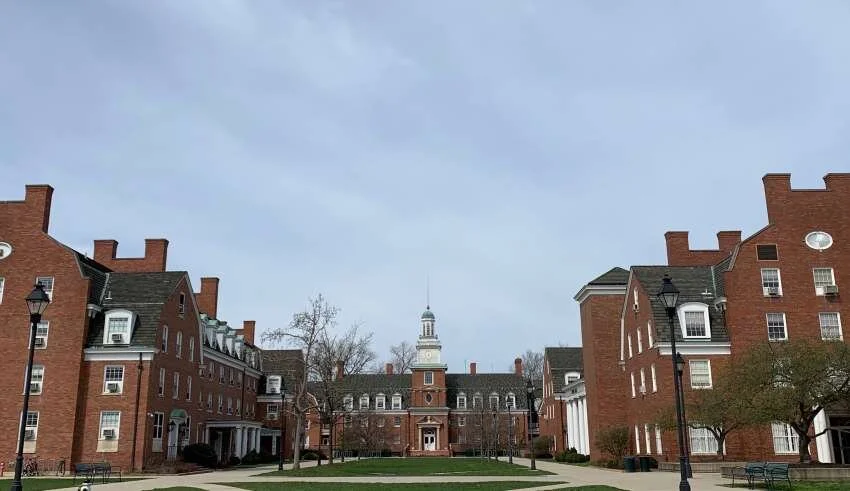Many college students omitted from coronavirus stimulus package
Photo by Sarah Donaldson.
President Donald Trump recently signed the Coronavirus Aid, Relief, and Economic Security (CARES) Act, which will provide direct government payments up to $1,200 to millions of American adults, but it does not include the vast majority of the country’s college students.
The package will give individuals who filed taxes in 2018 or 2019 a one-time cash payment, and families can receive $500 per child under the age of 17. Many college students, however, were claimed as dependents on their parents’ tax forms, rendering them unable to reap the benefits of the stimulus package.
Jennifer Staton, a tax specialist based in Cleveland explained that college students will not receive the payments if they are claimed as dependents based on the American Opportunity Tax Credit (AOTC).
The AOTC rewards parents of an eligible college student who they claim as dependents an annual credit of up to $2,500.
According to Staton, the act limits who can collect the tax payments so the government will not have to provide as much money and because the parents already get a credit, the dependent will therefore not receive a cash payment.
Many students are out of school and work because of universities ceasing operation and state government policies that mandate the closure of nonessential businesses to limit the spread of coronavirus.
Jilly Anderson, a junior War and Peace Studies major at Ohio University, said she is ineligible for a stimulus check, which will greatly affect her.
“I lost my job because Ohio U shut down, so now I am struggling,” Anderson said. “In addition, I wear hearing aids and my boyfriend has diabetes, and it is now very difficult to purchase batteries and insulin, which are expensive. That stimulus check from the government would’ve helped.”
The law awards the full $1,200 payment to those who meet the prerequisites and make less than $75,000 a year. If an individual makes $99,000 or more, they will not receive a cash payment.
The law also aims to broaden unemployment assistance by loosening the eligibility requirements, as well as increasing the benefits. Benefits include 13 additional weeks of unemployment insurance and $600 a week from the federal government on top of aid provided by states.
In Ohio, the maximum number of weeks to receive unemployment benefits is 26. Under the CARES Act, the new maximum is now 39 weeks, according to the Ohio Department of Job and Family Services.
College students and graduates will have deferred loan and interest payments on federal student loans. Universities will also be able to reallocate unused work-study funds to allow the university to pay work-study employee wages.
Small businesses — classified as a business with fewer than 500 employees — can also receive aid under the act. If businesses are approved, they could receive emergency grants of up to $10,000 and forgivable loans.
“The act pushes for businesses to keep their employees on payroll if they are rewarded a loan,” Staton said. “With employees on payroll, they will not be able to receive unemployment benefits and will receive healthcare which is important during this crisis.”
Republican Sen. Rob Portman discussed in a video the importance of small businesses retaining employees during this crisis.
“We don’t want people to be laid off,” he said. “We want people to keep their work, keep their health care as long as possible.”
Big businesses are also able to apply for aid. Companies that take money allocated from the act will be disclosed to the public and will need to pay the money borrowed back to the government.
The legislation also aims to assist hospitals, community health centers, local governments and community food banks.

